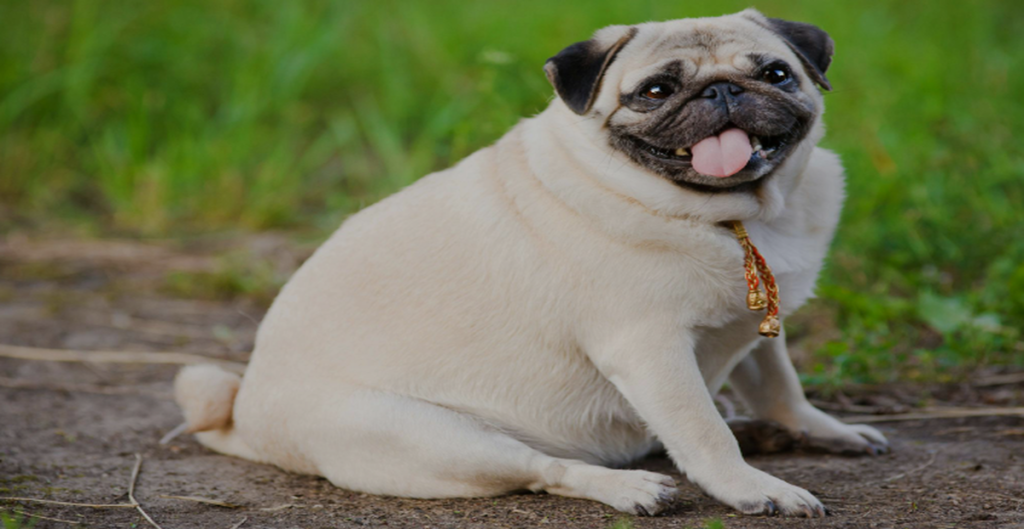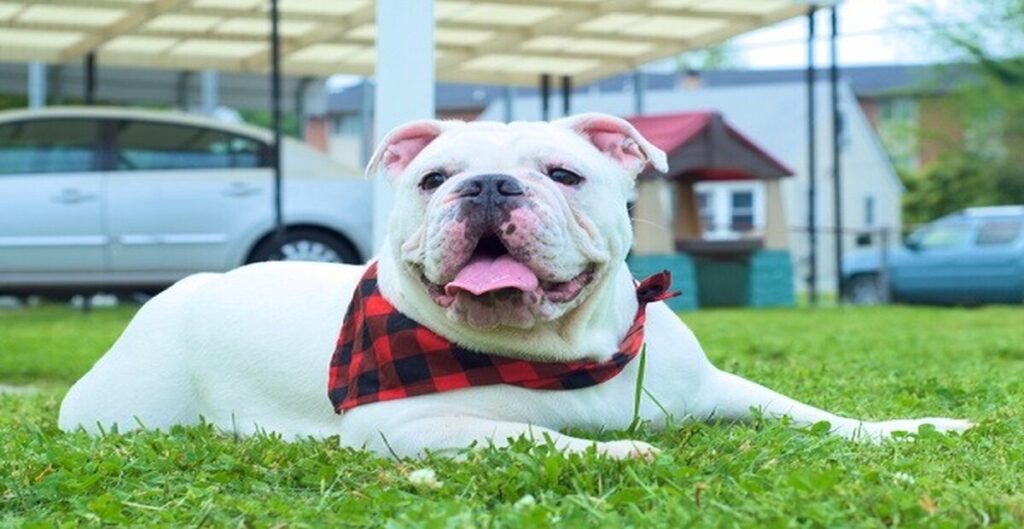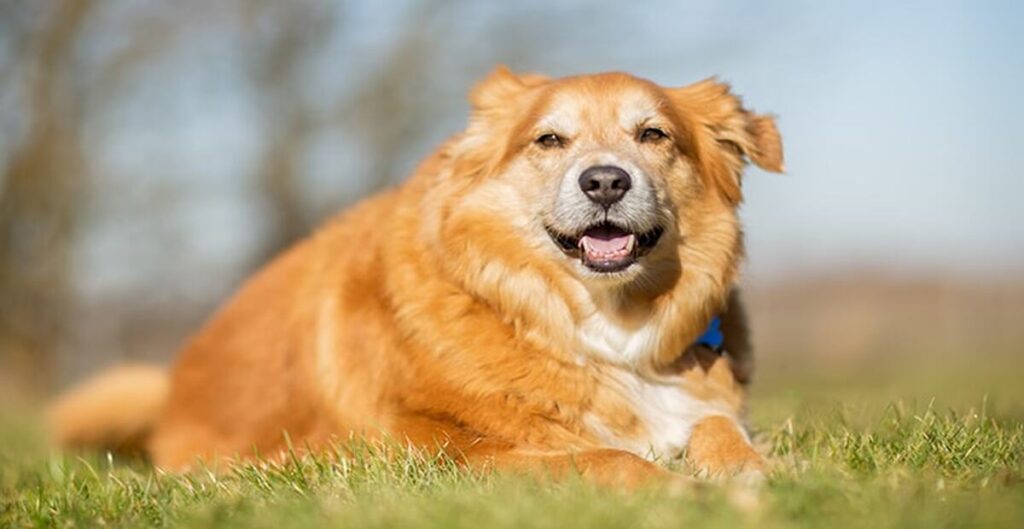
The sunny streets of Greece are filled with canine friends, as dogs are an integral part of the native way of life. However, underneath the fun barks and wagging tails, there is a worrying trend: dogs that are overweight. According to studies, 40-50% of Greek dogs suffer from obesity, which is a global problem that can have disastrous consequences. This article explores the complexities of overweight dogs in Greece, their particular risk factors and actions that can be taken to protect their welfare.
Beyond Bouzouki: An Overview of the Issue

Although the term “Mediterranean Diet” conjures up visions of crunchy vegetables and lean meats, its impact on canine friends paints a different picture. Weight gain is encouraged by traditional dog food options, which are often high in carbohydrates and lipids, as well as cultural customs such as sharing table scraps. In addition, the summer heat and the lack of outdoor spaces in cities can prevent people from getting the necessary exercise.
Health concerns under the Greek sun: exposing the dangers

Although the health risks associated with overweight dogs still exist worldwide, Greece should pay particular attention to the following factors:
Musculoskeletal disorders: The intense heat of the Greek sun aggravates the pain and discomfort associated with arthritis, a typical side effect of being overweight. For overweight dogs, walking on sunny sidewalks can be a daily challenge due to stiff joints.
Respiratory rhapsody: Dog breeds that have shorter muzzles—such as the brachycephalic breeds that are very popular in Greece—are more prone to heat stroke. The added weight makes it even harder for them to control their body temperature, which is quite dangerous in the summer months.
Leishmaniasis & Co.: Vector-borne diseases such as leishmaniasis are more common in Greece. Dogs that are overweight are more vulnerable to these potentially fatal diseases because their immune systems are compromised.
Psychological Pains: In the lively Greek culture, lethargy and reduced playfulness—common problems with overweight dogs—can be especially troublesome. Imagine being physically unable to enjoy carefree walks by the Aegean Sea.
Beyond Souvlaki: Particular Risk Elements in Greece

There are several Greek variables that contribute to the problem of overweight dogs:
Cultural norms: Greek society places great emphasis on sharing food with beloved pets. However, table scraps often include high-calorie items that inadvertently cause weight gain.
Limited outdoor spaces: It can be difficult for dogs to get the exercise they need in many urban locations because there aren’t enough dog parks or green spaces.
Breed Popularity: Greece has a strong preference for brachycephalic breeds due to their charming characteristics, despite their tendency to gain weight and heat stroke.
Recognizing the chubby puppy and making the diagnosis
It is critical to discover this early. Weight monitoring and routine veterinary examinations are vital. The Body Condition Score (BCS), a standardized system for monitoring fat storage levels and identifying potential concerns, will be assessed by your vet. Additionally, pay attention to small fluctuations in behavior, activity level, and breathing patterns.
From Souvlaki to Salads: Take on the Big Picture in a Greek Style

The obesity problems of Greek dogs require a comprehensive, culturally aware approach:
Nutrition Diplomacy: Work with your veterinarian to develop a weight loss strategy based on the Mediterranean diet. Follow conventional dietary guidelines by choosing lean sources of protein (fish, poultry), fresh vegetables and healthy fats such as olive oil.
Practice: Even if it means going outside your neighborhood, look for dog-friendly outdoor spaces. There are cooler temperatures for early morning or evening walks and fun. Swimming is a fantastic form of exercise during the warmer months, so give it some thought.
Rediscover your behavior: Avoid sharing your eating habit. Provide substitute incentives such as playtime or cuddles. Use positive reinforcement training methods to help your dog learn to control his begging and avoid giving him table scraps.
Embrace tradition: Make homemade, healthy snacks with typical Greek ingredients like yogurt, low-fat cheeses, and lean meats. Be inventive and look for dog food products with a Mediterranean influence.
Community Links: To promote activity and socialization, look for dog-friendly cafes or join dog-walking organizations. Make the most of the vibrant sense of community in Greece to build a support network for your dog and yourself.
Preventive Care: A Fantastic Symposium for a Healthier Future
The Greeks knew better than anyone that prevention is key. Here are some critical tactics:
Get Started in Puppyhood: From an early age, instill good behaviors by emphasizing reasonable portion sizes and consistent exercise.
Moderation is key: Despite social norms that support it, measure meal portions accurately and avoid giving kids free reign.
Seek professional advice: For personalized advice and weight management programs that cater to your dog’s breed, age and lifestyle, talk to your vet.
conclusion
The problem of overweight dogs in Greece requires awareness and action. To solve this problem, it is necessary to adopt a culturally aware strategy that combines customs with healthy routines. Together, dog owners, animal welfare groups, veterinarians and the general public can create a nurturing environment where all dogs, from playful terriers to majestic mastiffs, can thrive and live long, healthy lives. Remember that a healthier puppy adds significantly to the special fabric of Greek life in addition to a happier puppy. Together, let’s work towards a time when every dog’s wagging tail represents not only happiness but the best possible health and wellness.
FAQs
Although figures vary, research shows that 40-50% of Greek canines suffer from obesity, while the global average is 56%. This suggests that Greece may be facing a more serious issue that requires careful consideration.
Cultural norms: Eating high-calorie traditional treats and sharing leftovers at the table can lead to unintended weight gain.
Limited external locations: It can be difficult to exercise in urban areas because there aren’t many dog parks.
Popularity of the breed: Brachycephalic breeds are common in Greece, despite their propensity for weight gain and heat stroke.
Vector-borne diseases:
The prevalence of diseases such as leishmaniasis makes people more susceptible to obesity-induced immune compromise.
Weight monitoring and routine veterinary examinations are essential. Additionally, watch for minor tweaks like:
breathing becomes more difficult, especially in hot weather.
lethargic and with less energy.
difficulty jumping or climbing stairs;
noticeable fat deposits on the belly, base of the tail and chest.ς λίπους στην κοιλιά, στη βάση της ουράς και στο στήθος.
Adopt Mediterranean-influenced diets: Lean proteins, fresh vegetables, and healthy fats like olive oil are the things to choose while following conventional dietary guidelines.Look for dog-friendly outdoor spaces:
Get outside your neighborhood and take advantage of the cooler weather for a swim or hike.
Break the habit of sharing food by using positive reinforcement tactics and providing substitute rewards such as recreation.
Use your imagination to create nutritious treats: For homemade options, use low-fat Greek products like yogurt and lean meats.
Join dog walking communities or groups: Take advantage of the vibrant community feel to get help and meet people.
Establish healthy habits at a young age by emphasizing reasonable food portions and consistent exercise.
Measure food portions carefully and avoid overeating, even if social conventions dictate otherwise.
For personalized guidance and weight management programs that cater to your dog’s breed, age and lifestyle, talk to your vet..come on, talk to your vet.νίατρό σας.
Για περισσότερα: Πρέπει οι σκύλοι να τρώνε πλιγούρι βρώμης; Μπορούν?
Κορυφαίες 5 ανησυχίες για την υγεία του Beagle: συμπτώματα, αιτίες και λύσεις για τα λαγωνικά
